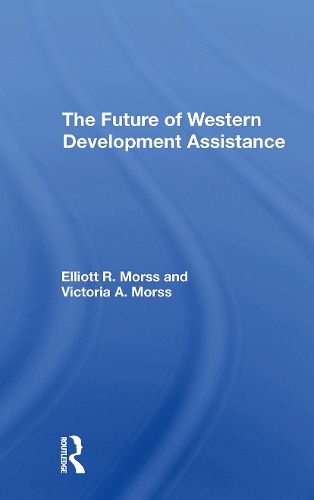Readings Newsletter
Become a Readings Member to make your shopping experience even easier.
Sign in or sign up for free!
You’re not far away from qualifying for FREE standard shipping within Australia
You’ve qualified for FREE standard shipping within Australia
The cart is loading…






Since the inception of Western development assistance, significant changes in the makeup of donors, recipients, development goals, and strategies have taken place. However, major donor institutions have not yet weighed the impact of these changes on their operations and objectives in anticipation of the future global environment. Discussing trends that will profoundly affect development assistance strategy, the authors raise such questions as: Will the demand for Western technical assistance drop sharply over the next decade? Was the Latin American debt crisis precipitated by the loan practices of international commercial banks? Should aid to Africa be shifted from investment in rural desert areas to investment in urban planning and infrastructure? Also examined are such concerns as the outside management of agricultural research; the U.S. focus on purchasing political allegiance with its aid programs, thus creating dependent nations; the threat to East Asian economic growth posed by the micro-electronics revolution; and the growing conflict between western aid and trade objectives. The authors' purpose is not to provide definitive prescriptions for future development programs, but rather to focus the attention of policymakers on important, but often neglected, issues.
$9.00 standard shipping within Australia
FREE standard shipping within Australia for orders over $100.00
Express & International shipping calculated at checkout
Since the inception of Western development assistance, significant changes in the makeup of donors, recipients, development goals, and strategies have taken place. However, major donor institutions have not yet weighed the impact of these changes on their operations and objectives in anticipation of the future global environment. Discussing trends that will profoundly affect development assistance strategy, the authors raise such questions as: Will the demand for Western technical assistance drop sharply over the next decade? Was the Latin American debt crisis precipitated by the loan practices of international commercial banks? Should aid to Africa be shifted from investment in rural desert areas to investment in urban planning and infrastructure? Also examined are such concerns as the outside management of agricultural research; the U.S. focus on purchasing political allegiance with its aid programs, thus creating dependent nations; the threat to East Asian economic growth posed by the micro-electronics revolution; and the growing conflict between western aid and trade objectives. The authors' purpose is not to provide definitive prescriptions for future development programs, but rather to focus the attention of policymakers on important, but often neglected, issues.